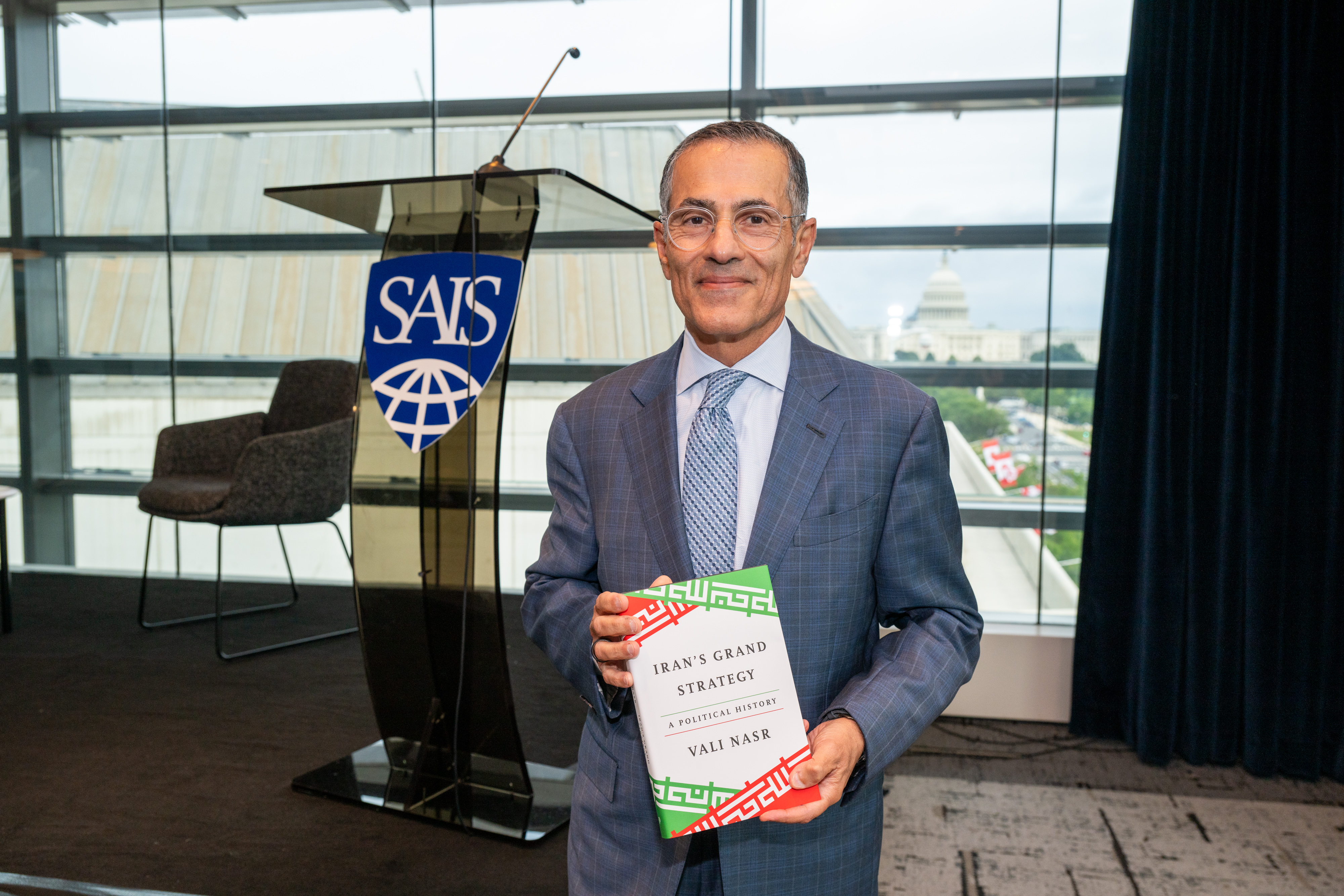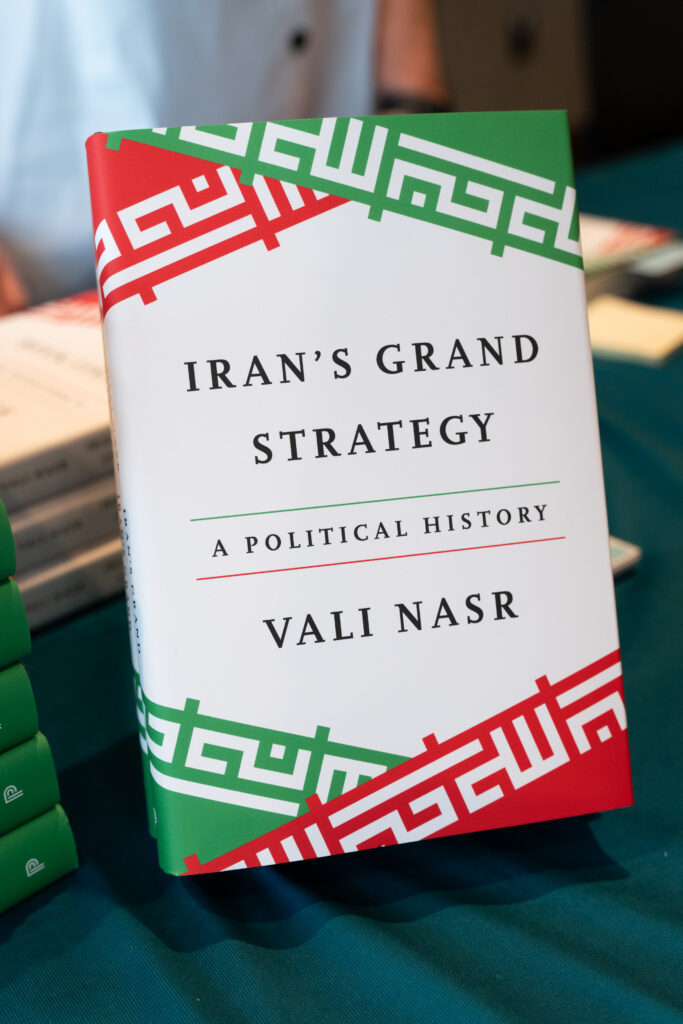4 things the U.S. should know to understand Iran’s true motives
Vali Nasr, Hopkins professor and author of the new book Iran’s Grand Strategy, explores Iran’s evolving global influence and what’s really driving its geopolitical strategy.

For years, the United States has approached Iran as a theocracy, driven more by ideology than any other factor. But that’s a fundamental misunderstanding of the nation, according to Vali Nasr, professor of international affairs and Middle East studies at the Johns Hopkins University School of Advanced International Studies.
Nasr’s new book, Iran’s Grand Strategy, argues the Islamic Republic is pursuing a plan designed to secure its country, assert its independence, and reinforce its place in the region and the world.
“The achievement [Iranian leaders] cite time and time again is not that we made Iran Islamic, it’s that we made Iran independent,” he said at his recent book launch event at the Johns Hopkins University Bloomberg Center.
Here are four insights Nasr shared as he discussed the progression of Iran’s geopolitical ambitions, its relationships with key regional actors, and the implications for U.S. foreign policy right now.
- National security has been the regime’s focus since the revolution
After consulting sources available in Iran—memoirs, YouTube debates on history, and journals—Nasr concluded that the country’s decision to continue the Iran-Iraq War, which occurred from 1980 to 1988, was meant to demonstrate Iran’s willingness to defend itself more than it was to export the revolution, the standard historical narrative.
“This is a country that has been shaped around a conception of national security, around protecting its vulnerabilities, and about how it would protect itself from what it sees as the greatest threat to Iran’s independence…the United States,” he said.
- The Iranian people are motivated by safety, too
The consensus following the Iran-Iraq War was that Iran survived because “it had the ideological commitment of a population that was willing to sacrifice for a total war to liberate the country from Iraq,” Nasr said.
And while today the population is not supportive of the regime, it is “nationalistic [and] protective of the country.”
It’s a shift that Nasr believes Israel underestimated when it attacked Iran this past summer.
“It was a miscalculation by Israel’s point that the war didn’t actually lead to a mass rebellion in Iran,” he said.
- The past two years have dramatically changed Iran’s position in the Middle East
The power dynamics in the Middle East are far different now than before Hamas attacked Israel and Israel subsequently invaded Gaza.
In some ways, Nasr said, Iran is weakened. Israel has carried out a series of targeted attacks against Iranian-backed organizations, such as the Houthis and Hezbollah, as well as top Iranian leaders, over the past two years. Additionally, the new regime in Syria has taken steps to move away from Iran, which had previously been a close ally.
But after Israel’s recent airstrikes on Qatar, Arab nations that traditionally distanced themselves from Iran, such as Egypt, have “opened their arms” to the Islamic Republic.
- The future of Iran’s nuclear program is unclear
After the U.S. attacked three nuclear sites in June, President Donald Trump declared Iran’s nuclear program “obliterated.” Nasr, though, said that assessment “depends on the definition of obliterated.”
He explained there’s one faction in Iran that still views the existence of a nuclear project as “up for negotiation,” noting the country could have followed India or Pakistan’s path by secretly making a weapon and announcing it once complete. By continuously announcing its ambitions, Iran continues to bring the U.S. to the negotiating table — and keeps the possibility of ending destructive economic sanctions alive, Nasr said.
Another faction of the country thinks building a nuclear weapon is the only way to ensure the country’s safety, especially in light of Israel’s recent attack on Iran and the collapse of Hezbollah.
Still, Nasr predicts that Iran will focus on building its defenses for short- and medium-term threats before returning to its nuclear program.
About Iran’s Grand Strategy
Drawing on memoirs, oral histories, and original in-depth interviews with Iranian decision-makers, Vali Nasr challenges the notion that Iran’s foreign policy simply reflects its revolutionary values or theocratic government, instead explaining its actions and ambitions on the world stage in new ways to show how today’s Iran is pursuing a grand strategy aimed at securing the country internally and asserting its place in the region and the world.
Iran’s Grand Strategy provides invaluable new insights into what Iran wants and why, explaining the country’s resistance to the United States, its nuclear ambitions, and its pursuit of influence and proxies across the Middle East.
